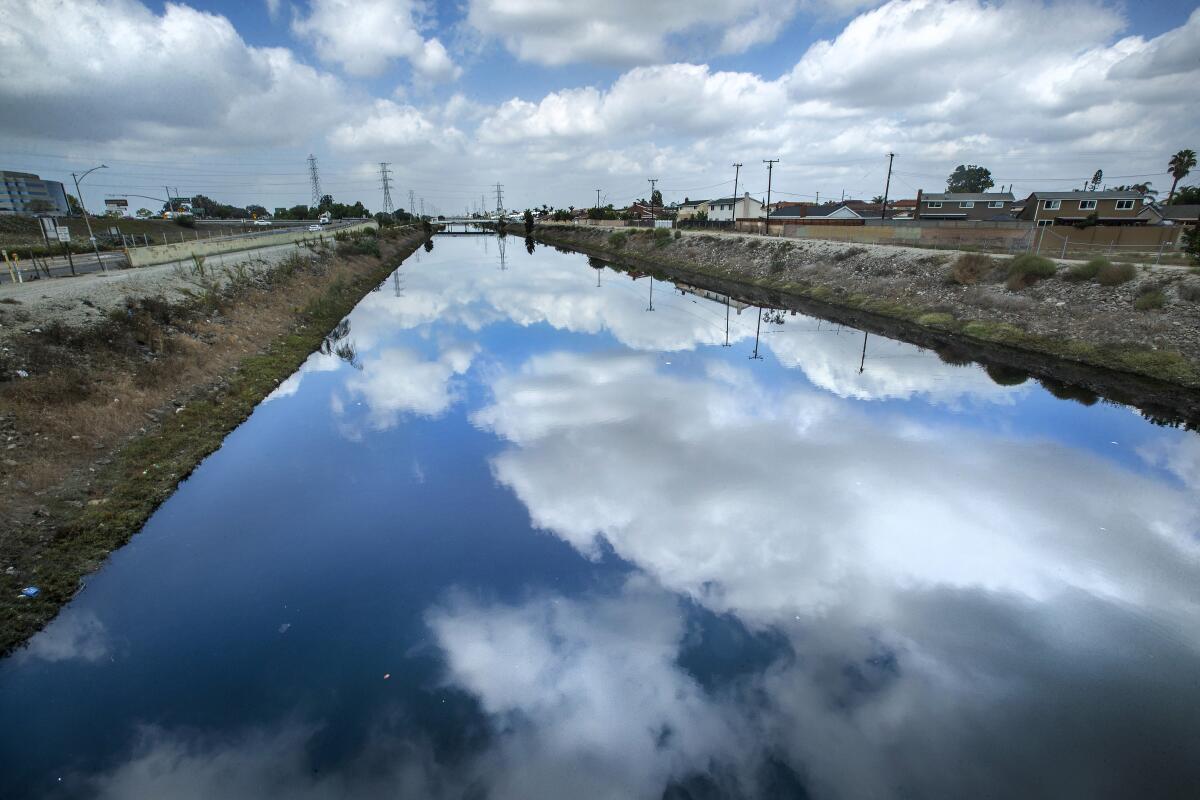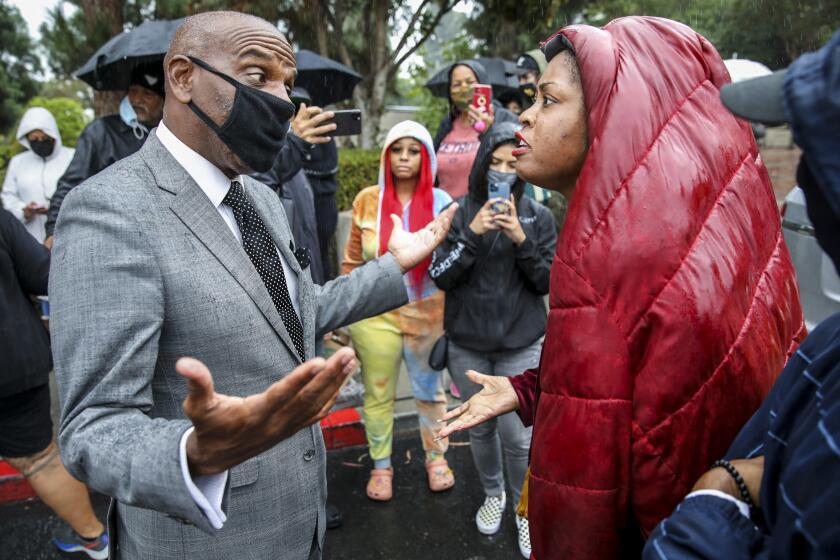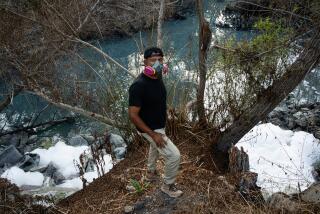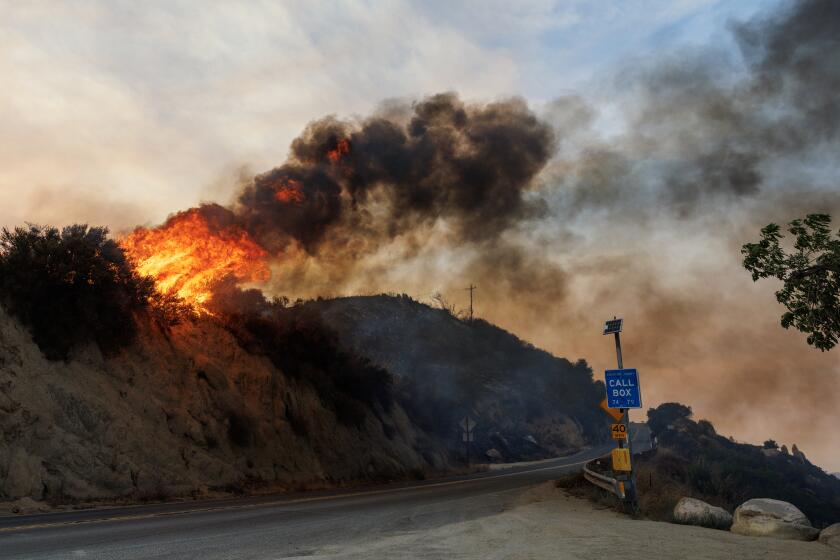Carson’s rotten egg smell is fading, but residents are still desperate to escape

As the hydrogen sulfide gas that stunk up Carson for more than five weeks begins to diminish, residents are still desperate to escape the unpleasant smell, with many hoping to extend their stays at hotels.
At a virtual town hall Wednesday, Los Angeles County officials said that the gas, at one time more than 200 times above California’s “nuisance” level, had significantly decreased in most areas.
But the odor, which has been likened to rotten eggs, farts and vomit, may continue to linger, said Jason Low, head of the South Coast Air Quality Management District’s air monitoring division.
Residents have complained of headaches and nausea, with about 3,000 housed in hotel rooms paid for by the county. Others have stayed put while accepting free air purifiers or reimbursements for them.
L.A. County public health officials have said that the hydrogen sulfide, which is emanating from the Dominguez Channel, will not cause long-term health effects.
But they have advised people to avoid prolonged outdoor exercise at night and in the early morning, when levels of the gas have been highest.
“When will the hydrogen sulfide be completely removed from Dominguez Channel and we’ll stop getting sick?” a resident, Ana Meni, said at the town hall. “Emphasis is always on the odor, but we still get sick when there is no odor.”
The smell, first reported on Oct. 3, stems from decaying organic material in the channel, which accumulated because of the ongoing drought, county public officials have said.
In Carson, a smell like rotten eggs from the Dominguez Channel has been sickening residents for nearly two weeks. Anger is growing.
But AQMD officials are also investigating other possible causes, including petroleum refineries, wastewater treatment facilities and landfills.
“We continue to evaluate every potential source, from a facility to a pipeline, or anything similar,” Terrence Mann, AQMD’s deputy executive officer for enforcement, said at the town hall in response to a resident’s question about whether a pipeline leak caused the odor.
Eight Carson residents have filed a class-action lawsuit alleging that a warehouse fire caused hand sanitizer and debris to clog the channel, killing vegetation and producing hydrogen sulfide.
Carson residents and city officials have criticized the county for a slow response.
County crews did not begin spraying odor neutralizer into the channel until Oct. 15, nearly two weeks after the odor began.
The county has spent about $18 million cleaning the channel and providing hotel and air purifier reimbursements, Public Works Director Mark Pestrella said in a letter to the Board of Supervisors.
If the situation lasts through March 2022, the cost could be between $100 million to $220 million, Pestrella said.
Residents demanded answers at a Carson City Council meeting at which council members declared a local emergency over a lingering noxious odor.
In mid-October, hydrogen sulfide levels near the Dominguez Channel were measured at 7,000 parts per billion, compared with about 10 parts per billion in the last week, officials said at the town hall.
California’s “nuisance” level is 30 parts per billion.
“Those of you who live in this area have been impacted in a tremendous way,” Pestrella told the 500 or so residents at the town hall. “And again, I want to thank you for your patience as we work through and create these solutions.”
Some residents said they have received text messages saying they need to check out of their hotels soon.
Pestrella said he was unaware of such messages and that the county reimbursement would be available until the problem was resolved.
Carson Mayor Lula Davis-Holmes said by phone after the meeting that the city was moving residents out of two hotels adjacent to LAX into other hotels.
the rooms needed to be freed up for the holiday season, Davis-Holmes said.
Times staff writers Ian James and Jaclyn Cosgrove contributed to this report.
More to Read
Sign up for Essential California
The most important California stories and recommendations in your inbox every morning.
You may occasionally receive promotional content from the Los Angeles Times.













